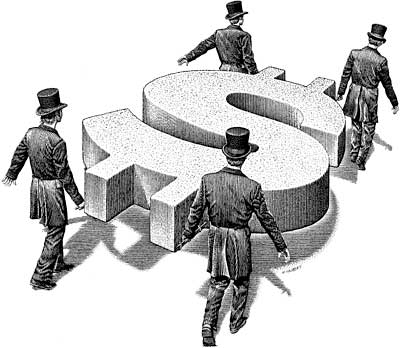|
The
Most Important Price Really, analysis is superfluous since the recent and still on-going collapse of the $NZ is tangible evidence that international capital markets have lost confidence in the 15 year-long attempt on the part of successive New Zealand Governments to make free-trade and unrestrained markets work both for foreign capital and local capital. However, within New Zealand support for the Reserve Bank's two-pronged thrust price stability and a freely floating dollar remains surprisingly intact and not just in official policy circles. The Labour Party, as usual, will not find the going easy. I predict that the Labour Government believes: 1. The degree of volatility in the NZ-US/world exchange rates culminating in recent record low price of the $NZ represents a policy error of the first magnitude for a country that is so heavily reliant on exports. The Reserve Bank's price stability philosophy was, and continues to be, a monetary strategy that encourages predative foreign investment and exploits local social, natural and mineral capital resources until, having been exhausted, the foreign money sells out and leaves. 2. A formal link between the NZ and Australian dollars both on traditional analytical grounds and in the context of the emerging geo-economics of South East Asia and China is a good thing. 3. The terms-of-trade argument for exchange rate movements, namely the proposition that the exchange rate should rise and fall with the terms of trade under a flexible rate system and that the exchange rate acts as a kind of economic buffer, such a policy is considered inappropriate for an open economy with a diversified export base: 4. The type of fix has not been decided on and options may not even have been made aware. The options, in increasing degreee of loss of sovereignty; Currency Board Fixed exchange rates Common Currency Dolarisation (use Australian dollars in NZ) The obvious danger of currency price-fixing is loss of sovereign authority over the most important price in an economy. The less obvious but much more real danger is that the Labour Government is incapable of seeing past the above in the frame arguments and cannot do what New Zealanders do best, think outside the frame, be satisfied with a fix that works for the fixer and use local materials. I would suggest that currency markets be put under the control of that great New Zealand institution, the cooperative. That the foreign trade stakeholders (business big and small, employees, importers, finance houses, consumers) come under the umberella of a state cooperative which decides on currency, tariffs and taxes that relate to foreign trade. If we want to compete, we're going to have to cooperate or our dollar will die. .
|

